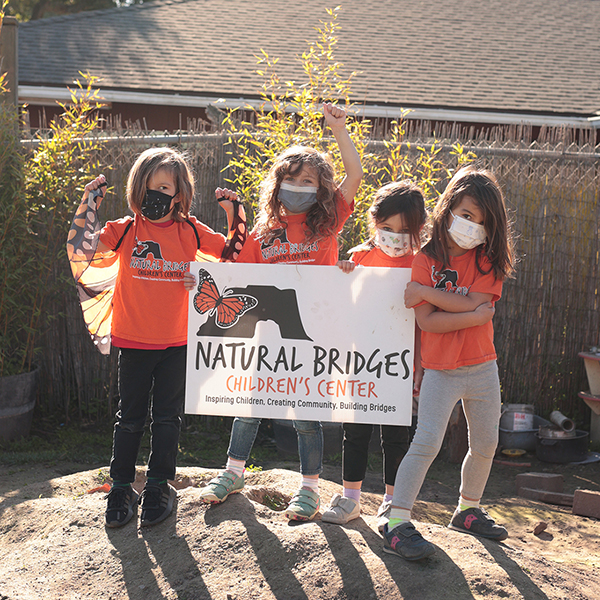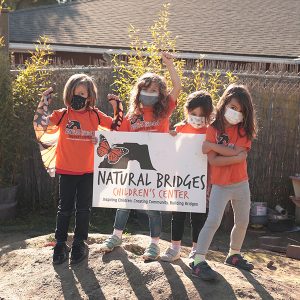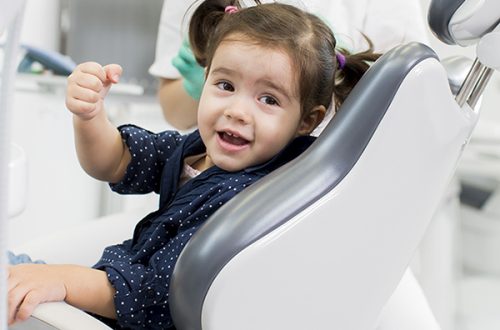
Preschools Persevering in the Pandemic
Early childhood educators are passionate about their work and even with a poverty level annual salary, want to go back to work.

The silver lining of the pandemic is the added layer of insulation that it gives new parents.
 March 13th 2020; the day our schools and preschools closed. This was a monumental moment for our nation, and undoubtedly for our school system. COVID-19 was wreaking havoc and life, as we were all accustomed, was about to change. We were embarking on uncharted territory, and both schools and families were panic-stricken.
March 13th 2020; the day our schools and preschools closed. This was a monumental moment for our nation, and undoubtedly for our school system. COVID-19 was wreaking havoc and life, as we were all accustomed, was about to change. We were embarking on uncharted territory, and both schools and families were panic-stricken.
During these next few weeks and following months, many schools and preschools spent their time hastily putting together distance learning programs in order to keep children connected to their learning, as well as, to provide consistency in their life. ‘Distance Learning’ would soon become America’s most used phrase and would be one that would ensite passionate conversations within and between households and educational institutions.
Concurrently, while educators were trying to create spaces for children, preschools across the nation were quickly going out of business, having to shut their doors forever. Within a few short months, Santa Cruz County alone lost 50% of its valued child care centers. A number that would prove hauntingly significant for working families who may have quit their childcare, and who would it need again later.
Cut to… July 24th, the date our state communicated what its school year was going to look like. It was announced that in order to keep our communities safe, all public schools would be ‘pivoting’ to virtual learning. Coincidentally, at the very same time, the state of California was also communicating the need for preschools to remain open.
This elicited a lot of questions from the ECE community as this announcement came at a time when we had just lost so many quality early childhood educational centers and at a time when we all felt alone, unappreciated, and unrepresented.
Although happy to reopen, we wondered, “why, if it is unsafe for public schools, would it be safe for preschools? Would we be afforded protective gear to support our staff? Would there be assistance in getting safely ready? These were a few of many.
Those questions would soon be answered or rather and more accurately, would be unable to be answered because there was no organization to turn to. There was no data presented on how transmission in schools was happening. There were no considerations of protective gear and zero assistance from our licensing agency as they too, were trying to figure things out. It was mayhem.
What was becoming apparent to the masses was that healthcare workers were needing care and families who were going back to work were also needing care. Without care, parents can not work, and without work income is limited, and with income limited, there is no thriving economy. Every person in the state was seeing how our economic success depends on a healthy early care and education system.
This was not, and is not new news for the teachers in this field. Dr. James Heckman, Professor of Economics at the University of Chicago and Nobel Prize Winner has devoted his life to research and neuroscience showing that quality early education heavily influences the health, & economic and social outcomes for individuals and society at large. Even with Heckman’s three decades of research, the profession of early education still struggles.
Not shocking to those of us who know the history. This field has experienced an insurmountable amount of inequities and a continued disproportionate wage compared to other teaching positions with similar higher education degrees. Even with the decades of neuroscience showing the explicit impacts and benefits to children’s deepened neural pathways, and it’s direct effects on their future academic success, this field is still the lowest paying profession in the country. An ECE teacher with a bachelors or masters degree is paid only $25-$35k a year. Poverty level.
Early childhood educators are passionate about their work and even with a poverty level annual salary, want to go back to work. In preparing for our reopenings, preschool directors and owners spent endless hours trying to figure out everything involved in doing so. There were multiple agency guidelines to research, data to interpret, regulations to follow, checklists to complete, training’s to do, postings to hang, environmental changes to make, cleaning products to purchase, disinfecting routines to implement, and updates to the websites, handbooks, and contracts to redo. All of this, on top of, and in addition to, the already time consuming work that goes into running a quality early education program.
We needed help and there was no one place to go. With so many moving parts, and nobody having definitive answers, the feat of reopening was becoming daunting and isolating and one that was becoming almost impossible. Directors and owners began to collaborate. We at NBCC along with Discovery’s Sara Balla, began dialog on how to unite our professionals.
Our struggles were also presented to the County Office of Education’s Superintendent, Dr. Faris Sabbah, Diane Munoz and Sita Moon. Dr Sabbah graciously set up weekly meetings whereas all preschools and home care providers in the county could join. The lines of communication were put in motion.
We are on a path to improving this field’s professional perception, and to sharing the important work that early educators do for our youngest of learners. Like many Preschools in Santa Cruz, Natural Bridges Children’s Center is passionate about
creating a loving and safe environment for our students and families to learn and grow. We are advocates for our field and for the teachers. This pandemic has wreaked havoc on early care and has added a whole new layer of responsibilities. The list is long. Managing stricter safety procedures and protocols, working with state and local government agencies, viewing & analyzing daily COVID-19 data, and the constant communication of information to families. This while maintaining children’s positive & inspired early learning experiences.
Our beautiful town of Santa Cruz is in the depths of a true child-care crisis and as we continue to persevere in this pandemic we ask to be included in state research and in the decision making processes. We are asking for a seat at the table to have a voice and to advocate for our profession.
As this virus continues to incline we are beginning to see with more frequency, preschools who have been affected by COVID related cases. They have had to close and/or implement COVID-19 quarenting protocols. 11 preschools since December have been affected by COVID.
In addition to this, our preschools are facing the real and ongoing challenge of finding qualified teachers to continue to work for low pay while also putting their health and safety at risk.
Even through these challenging times however, we at Natural Bridges Children’s Center along with the whole preschool community are hopeful that with the collaboration amongst local directors, and with the continued support from the County Office of Education, our preschools are on their way to becoming more included in the decisions making process for education. We look forward to the day when our work and education are compensated with a worthy wage and when society recognizes the important work preschool educators do for children’s healthy transition to elementary school and for their successful educational journey.
Jonnie Cardinale, Allie Maffei and Karyn Schmidt combined have been in the field for over 5 decades. When they met eight years ago, they found common ground, sharing their passion for; child development, quality preschool programs, family support and the need to advocate for the value and importance of early childhood education! They believe in teaching that is guided by neuroscience and the significance of the first five years of learning to be the foundation of a child’s future academic and life success. They opened Natural Bridges Children’s Center; a play and inquiry based, farm-to-table program on Santa Cruz’s Westside in 2017. Since then, they have been blazing the trail for preschools in our community and have been sharing their approach and research in hopes to change the future of their beloved field.


You May Also Like

Lego My LEGO
January 27, 2021
Kids’ Dentistry and Covid
January 28, 2021

